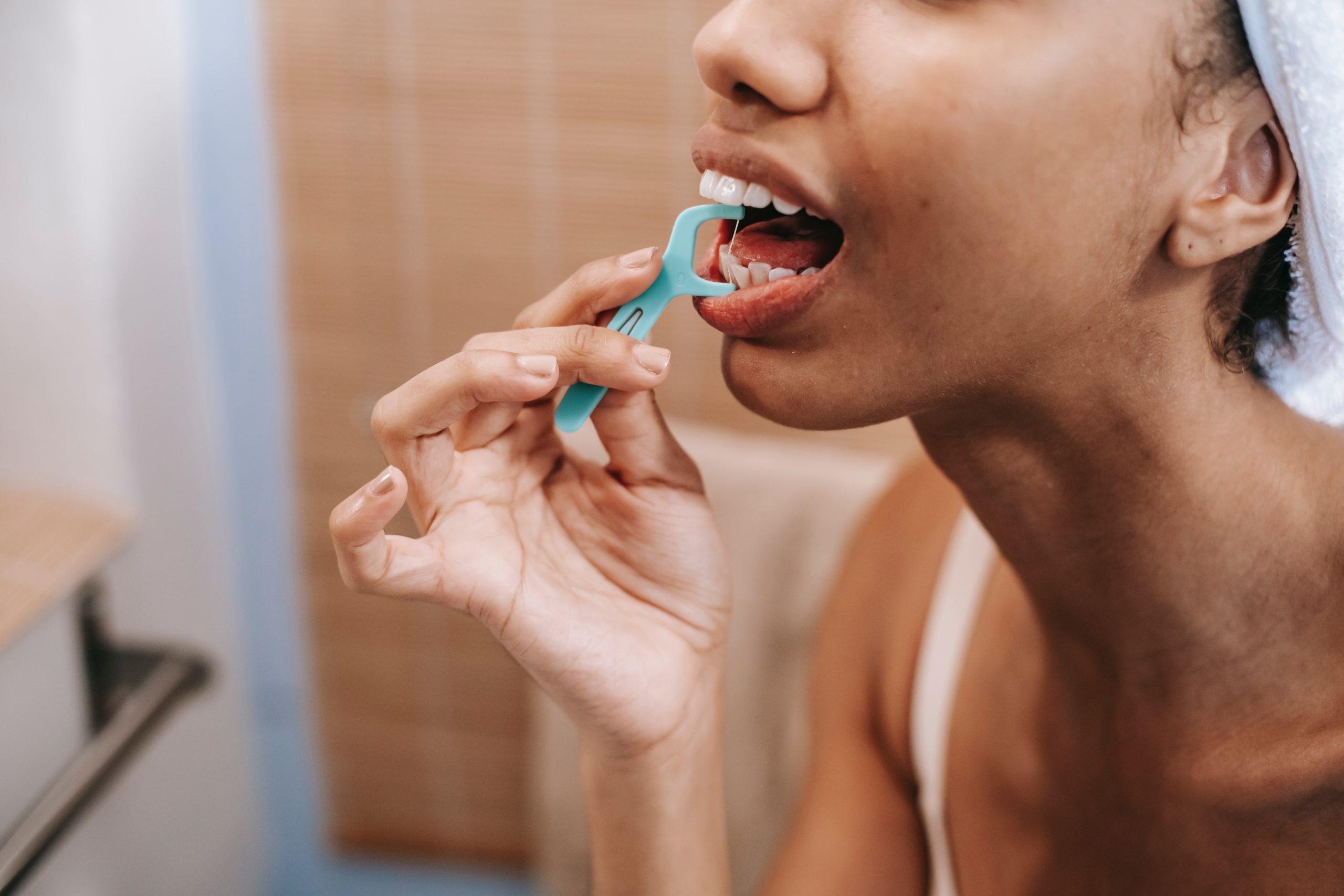Flossing is an essential part of a healthy dental hygiene routine as it helps to remove food particles and plaque from between your teeth and along your gum line. Flossing your teeth may seem like a simple task, but it could be less intuitive than you think. By taking the time to floss properly, you can help ensure that your teeth remain clean, healthy, and free of tartar buildup.
Here are 5 common flossing mistakes you could be making:
- Flossing at the wrong time. Flossing too soon after eating can potentially draw residual food particles in between your teeth. Generally speaking, it is best to floss a few minutes before brushing your teeth in order to prevent decay. When too much time passes between flossing and brushing, plaque is allowed to accumulate on your teeth, reducing the effectiveness of the brushing process.
- Flossing after brushing. Flossing after brushing can result in residual toothpaste getting stuck between teeth and along the gum line, causing bacteria to build up. It is recommended that you always floss before brushing, as this will help remove any food or plaque that may be stuck between your teeth, making it easier for the toothpaste to do its job.
- Failing to floss the whole tooth. This can leave food particles and plaque trapped between teeth and along the gum line, leading to an increased risk of developing oral hygiene problems such as cavities and gum disease. It is important to floss the whole tooth, from just above the gum line down to the base of the tooth, in order to effectively remove debris that cannot be reached with a toothbrush.
- Staying above the gum line. Going too deep when flossing into can damage the gums and cause irritation. Instead, you should gently slide the floss up and down against each tooth, making sure to go around the curves and crevices of the teeth while remaining above the gum line.
- Stopping because you see blood. If you are bleeding while flossing, it doesn’t mean you are doing something wrong. However, it does mean your gums are inflamed. Regular flossing makes your gum tissue more resilient and helps minimize bleeding when you floss. It is possible that there may be an underlying cause for bleeding gums, but if the bleeding stops quickly, it is usually not a problem. In many cases, scaling and root planing can resolve the issue.
You’re in for some phenomenal dentistry.
Our Las Vegas patients receive top-of-the-line oral health care at BYND DNTL. Our modern approach to treating dental concerns extends beyond oral health to encompass your overall well-being. If you have a question, we’d love to hear from you. Give us a call at (702) 362 – 9353.





